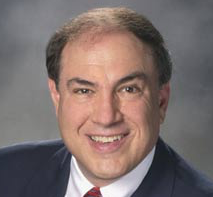Gelman: Is Workers' Comp Ready for Coronavirus?
Thursday, January 30, 2020 | 0
It seems that every decade a new pandemic emerges on the world scene and complacency continues to exist in the workers’ compensation arena to meet the emerging challenges of infectious disease.

Jon L. Gelman
China reports that many health care workers have already been infected with coronavirus. That country is notorious about underreporting serious health issues. China has imposed severe travel and commercial restrictions on more than 33 million residents in infected communities.
The rapidly spreading 2019-nCoV virus is emerging around the globe, and confirmed cases have been reported in the United States and Canada. The World Health Organization is investigating whether an emergency should be declared.
The workers’ compensation system in the U.S needs to be ready for the challenge on the horizon. Is the system ready to compensate workers who should take time off from work for undiagnosed 2019-nCoV even if a mandatory quarantine has not been issued?
If transportation has been restricted because of symptoms, should workers be provided benefits if they have been exposed to a coworker or family member who presents with symptoms even if not a confirmed case? Will workers’ compensation be efficient enough to respond to undiagnosed 2019-nCoV even before a coworker has been confirmed infected, to avoid the potential of the further spread of disease?
The 2009 influenza pandemic had created a new framework of acts and regulations to respond to the WHO phase 6 pandemic alert. Governmentally imposed employment disruptions resulting from regulatory work disruptions to prevent the spread of disease may be massive. While workers’ compensation was envisioned as a summary and remedial social insurance program, the challenges facing it to deliver benefits as promised may be seriously burdened.
There was a massive global reaction to the 2009 flu pandemic. On April 25 that year, the WHO director-general, Dr. Margaret Chen, declared the H1N1 virus outbreak a “Public Health Emergency of International Concern.” The international declaration indicated that a coordinated international response was potentially necessary to curtail the spread of the disease that was perceived as a public health risk.
Recommendations to restrict both trade and travel may follow. The current president of the WHO has hesitated about declaring a world health emergency even though coronavirus has already spread across the globe. This delay compounds issues of credibility that China's past actions have established.
The United States had structured its response on both a state and federal level to the 2009 influenza alert. The Public Health Service Act (PHS) permitted the secretary of Health and Human Service (HHS) to access a special emergency fund; allows the use of unapproved medical treatments and tests; allows the waiver of certain reimbursement of Medicare and Medicaid expenses; and waived penalties and sanctions for violation of medical privacy rules. Additionally, the president was permitted to issue an emergency declaration under the Stafford Act to coordinate emergency relief under state and federal programs, such as use and distribution of antiviral medications.
Potential closings and restrictions have raised issues as to what programs, if any, will be able to provide benefits to the employees because of the involuntary nature of the closings and disruptions. A Harvard School of Public Health study reveals that 80% of businesses foresee severe problems in maintaining operations.
The workers’ compensation system could be requested to provide temporary disability benefits for occupational disease absences on a massive scale never before experienced. Pre-emption by superseding emergency regulatory actions may curtail employment that will trigger the implementation of state workers’ compensation benefits.
The employer and the workers’ compensation insurance carriers will be required to pay temporary disability and medical benefits as a direct consequence of efforts to prevent the spread of a communicable disease. The carefully crafted employee-employer notification structure integrated into the workers’ compensation system may be partially or entirely disrupted by the consequences and chaos of a global health emergency.
Workers’ compensation claims arising out of a potential pandemic will need to fit into the convoluted framework of statutory acts and regulation. Reimbursement from the usual collateral third-party sources may be restricted.
In addition to the doctrine of sovereign immunity enjoyed by the federal and state governments, other legislation, including the Public Readiness and Emergency Preparedness Act (PREP), limits the liability of others under certain specific circumstances.
The potential enormity of a coronavirus pandemic presents a new and novel challenge to the system — one that must be considered by both federal and state planners. Workers’ compensation programs have adapted to emergencies before, including natural disasters and terrorist attacks. The urgency of the situation requires that the system be prepared now.
Claimants' attorney Jon L. Gelman is the author of "New Jersey Workers’ Compensation Law" and co-author of the national treatise "Modern Workers’ Compensation Law." He is based in Wayne, New Jersey. This blog post is republished with permission.






Comments